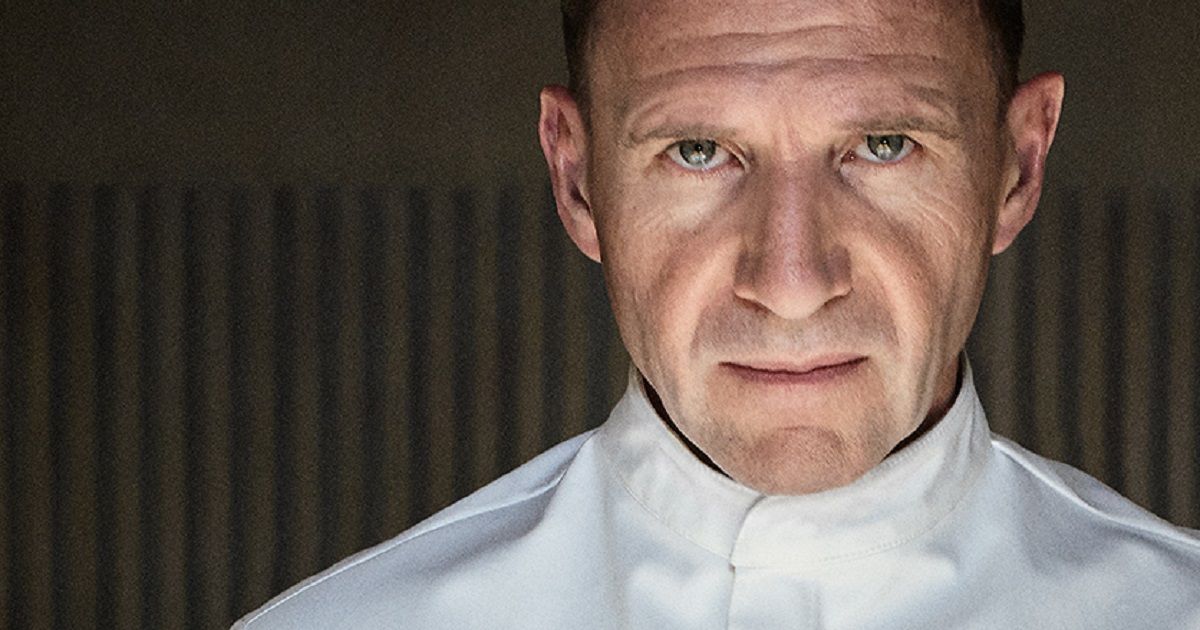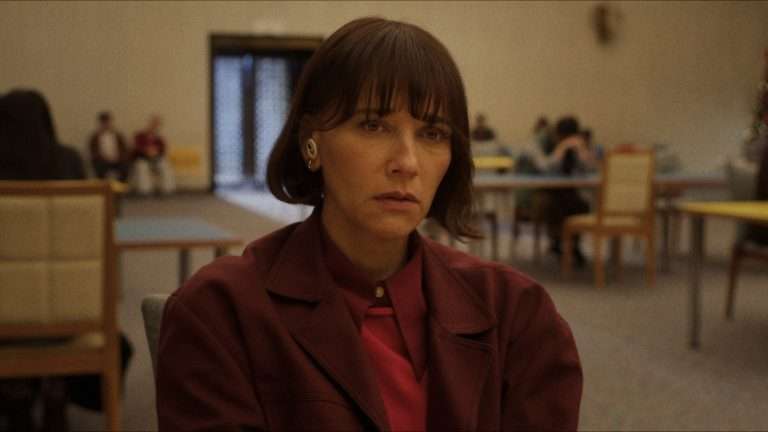The Menu (2022) Review: How good a satire works depends not only on how well it’s able to ridicule its characters through quick wit but also on how it presents its contrasting ideas that go on to expose the underlying absurdities of human nature. The latter, however, becomes possible if there’s a good enough audience surrogate for a story, especially for a setting as unique as the one “The Menu” uses for almost the entirety of its runtime. Although here it’s not just the central character that acts as a surrogate who helps in relaying the exposition, director Mark Mylod also drives plenty of mileage out of the ensemble of supporting characters that find themselves in a preordained situation.
“The Menu” follows a fairly simple narrative and setting which begins with the arrival of a bunch of wealthy characters to an island. The center of attraction is a $1,250 dinner plan, a tasting menu assembled by the renowned Chef Slowik (Ralph Fiennes). Some of the customers are established food critics, while others belong to elitist circles. But Margot (Anya Taylor-Joy) seems ordinary, a trait the film sets up with a quip to her date, Tyler (Nicholas Hoult) while the two wait along others for the boat to arrive. She asks him, “What are we eating? A Rolex?”
Much like the backdrop of “The White Lotus“, the 12-acre farm-to-table backdrop here too feels lavish; the set consists of metallic contours and interiors of the exalted restaurant in the middle of the island, piercingly contrasting the fate of its deeply corrupt inhabitants. The name of the cuisine is Hawthorne, one that’s special enough to be located on an island of the same name. Slowik is established as a dour guru of cuisine, one who has a reputation and heads an army of cooks who labor just beyond the wide diners of the open kitchen. But as he starts serving the meals, something far more sinister is pulled from under the rugs.
The structure of “The Menu” is divided into courses – a clever narrative decision that instantly makes the film feel more contained while allowing the writers to make the most use of the vibrant setting. With each dish, its ingredients are listed on the screen; by being content with satirizing the food, the movie uses the same as an allegory of givers and takers. “Do not eat. Taste.” Chef Slowik says to the diners, knowing all too well that their stomachs were too filled long before they could even savor the taste. The cinematography by Peter Deming beautifully juxtaposes the cult-esque proceedings with stunning wide shots that make the private island look impossibly idyllic. There’s always a sense of momentum with the ongoing on-screen descriptions of the dishes that establish concurrent themes throughout the runtime.
Writers Seth Reiss and Will Tracy, (who also worked on HBO’s “Succession”) incorporate dialogues that feel so matter-of-factly presented by the actors, that it makes the stark contrasts on screen even more palatable. In “The Onion”, Seth Meyers and John Oliver veterans lay out an Onion-y type world in the film that feels incredibly specific about its texture. In fact, the film, produced by Adam McKay, course-corrects upon the pitfalls that made the filmmaker’s “Don’t Look Up” so sloppy in its execution.
The world of “The Menu” seems alarmingly dreary to the food critics and cultural commentators who disguise themselves as ‘elitists’. But it might as well be looked upon as a film that talks directly, albeit not as in-the-face as McKay’s previous outing, to what a lot of modern-day criticism looks like. When an army of the venerable Chef goes out to express in an insouciance way how gloomy the fate of their customers is eventually going to look, their nonchalant attitude in itself plays in for how disconnected the elitists sometimes tend to get from the actual piece of art.
The movie, however, works precisely because while holding up a mirror to such social themes, Mylod always retains the delightful nature of the script. This is partly because of the exquisite staging which, as a character correctly pinpoints at a point – “is all about stagecraft”.
But the biggest standout in the movie remains the extraordinary performance by Ralph Fiennes who perfectly balances the line between showcasing a disarming combination of zen-like composure and maintaining obsessive control over the rest of the characters. The secret recipe to a good satire is letting your actors chew onto the comedic scripts while they enact those parts out like a high-stakes drama (as the controversial Jeremy Strong New Yorker profile would have us believe). “The menu needs an ending that ties everything conceptually”, one of the members of the Chef army says to a character in the movie’s second act. The film, though, makes sure to keep you thoroughly entertained even when it doesn’t.






![Brawl in Cell Block 99 [2017]: A Bone-Crunching & Skull-Crushing Delight](https://79468c92.delivery.rocketcdn.me/wp-content/uploads/2017/11/brawl-in-cell-block-99-768x414.jpg)
